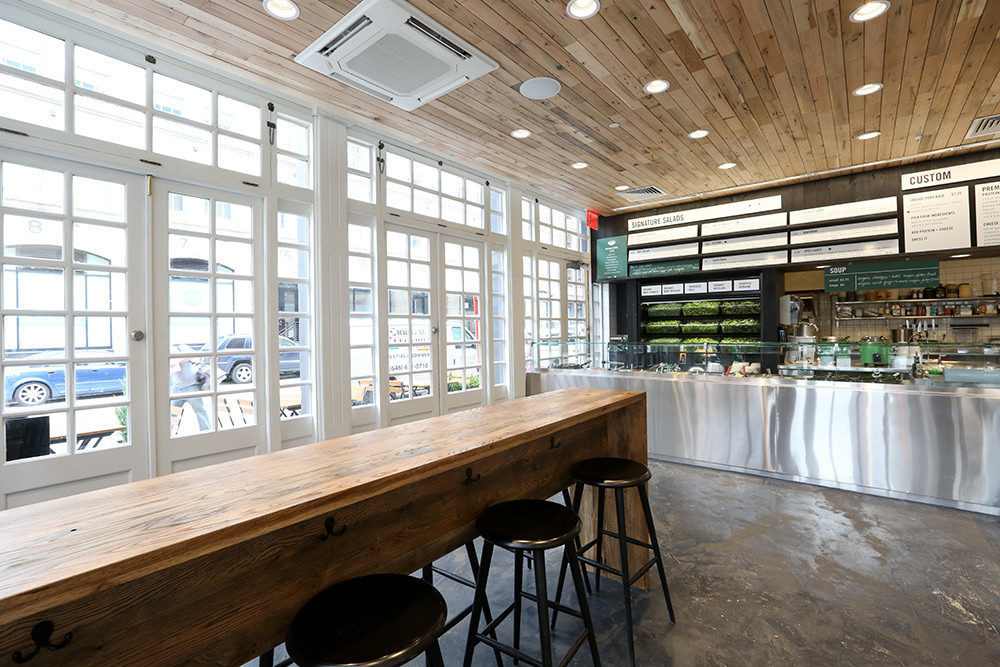


It is, of course, almost hilariously convenient for a man who’s made millions slinging expensive lettuce to believe that the future of the republic might depend on the feds force-feeding people the food he already sells that salad is the ideal medicine for an incredibly contagious respiratory virus might not be a trustworthy argument coming from a literal salad millionaire. (Sweetgreen did not respond to multiple interview requests for this article.) And Ongweso has since found evidence that Neman previously advocated similar measures within the company. Even so, Neman defended the intent of the proposal. Salads alone are not going to solve this,” according to a recording obtained by Vice. The CEO apologized to Sweetgreen’s staff in an email, and later, at a town-hall meeting with employees, acknowledged that indeed “Sweetgreen alone is not going to solve this. Neman faced backlash after Vice’s Edward Ongweso Jr. More specifically, he argued, the government could ban or heavily tax some foods, including any kind of processed food, a category so meaninglessly broad, it would wipe out virtually everything stocked on the inner aisles of the average grocery store-not to mention much of what is sold by Sweetgreen’s competitors. He did offer one proposal: The federal government could decide which types of food Americans are allowed to eat. Neman did not go into many specifics about how health should be mandated, or what such mandates would mean for disabled people, though efforts at national improvement that focus on those designated as physiologically undesirable have historically ended poorly for them. (The vaccines, it should be noted, have so far proved to be near-miraculously effective at saving those who get them.) Instead, he lamented that Americans are simply too fat to survive COVID-19, a reality that he says could be addressed with “health mandates.” “No vaccine nor mask will save us,” he wrote.
#SWEET GREEN HOW TO#
Last week, in a lengthy, now-deleted post on LinkedIn, the CEO and co-founder of the upscale salad chain Sweetgreen expounded on a topic that might seem a little far afield for a restaurant executive: how to end the pandemic. As of May 2021, the 121-unit company is privately held.Jonathan Neman really seemed to think he was onto something. Sweetgreen is reportedly seeking an IPO, according to multiple reports. “I’m excited about the work we’re doing together to create a positive impact.” As an athlete, what I put into my body directly correlates to how I perform and eating delicious, healthy foods fuels my daily routine,” Osaka said at the time. “I’m proud to join forces with Sweetgreen to change the way the world thinks of traditional fast-food sponsorships. The meal in collaboration with Naomi Osaka was announced in early May, when she was also named the brand’s youngest investor and first national athlete ambassador. The company said it hopes to roll the new design out at locations across the country over the next few years. While still all lowercase letters, the name is now in a bright, electric color that bounces off the classic dark green of Sweetgreen.īelow: Old Sweetgreen logo (left), new Sweetgreen logo (right).Ī post shared by sweetgreen design the new brand identity, Sweetgreen worked with COLLINS, a San Francisco and New York–based firm, to remodel the brand’s physical store design and signage systems, marketing, advertising, social channels, digital products, packaging and team-member uniform. The main difference is the company’s logo. Sweetgreen pledged to be carbon-neutral by 2027 in February of this year. The new redesign is meant to highlight its “food ethos, which celebrates seasonality, local sourcing and transparency,” as well as its “sustainability initiatives and ongoing journey to carbon neutrality,” according to the company. Over the past year, the Culver City, Calif.-based brand has been crafting its new brand identity internally to refocus on “connecting people to real food,” according to a spokesperson for the company. “At Sweetgreen, we create experiences that connect food and culture together, and we want this brand identity to help re-imagine what the fast-food industry looks like in the years to come,” said Nathaniel Ru, co-founder and chief brand officer. Sweetgreen unveiled a rebranding, which includes a new logo, uniforms, store look and digital design Wednesday.


 0 kommentar(er)
0 kommentar(er)
